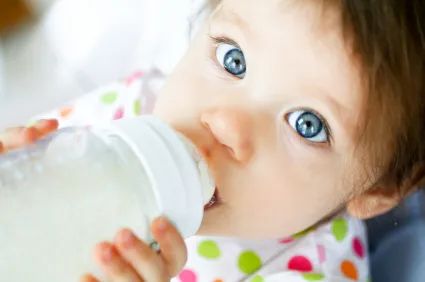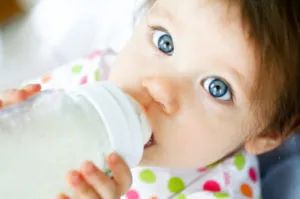
Breastfeeding: When Things Don’t Go As Planned
 A few months ago, I ran into an acquaintance that had a baby just a few months older than mine. Our conversation led to a chat about breastfeeding, and while she lauded the benefits and shared her experience, I nodded and agreed, although I had almost no experience of my own.
A few months ago, I ran into an acquaintance that had a baby just a few months older than mine. Our conversation led to a chat about breastfeeding, and while she lauded the benefits and shared her experience, I nodded and agreed, although I had almost no experience of my own.
When I got to my car, tears welled in my eyes. I wasn’t successful at nursing, but felt too much shame to tell her, even though she would have understood and been supportive.
When our little one arrived, she was raring to go and nursed like a champ, but her weight dropped quite a bit by her first appointment, and days into parenthood, we still hadn’t seen a wet diaper. The advice we received from lactation consultants was to “keep at it” and “nurse as often as you can.” The day we decided to head back to the hospital, I finally expressed my breast and barely a dribble filled the container.
Our little girl worked SO hard for SO long for SO little. I broke down in tears.
My mother-in-law sprinted to her car, raced to the grocery store, and bought formula and a bottle – the only bottle in our small-town grocery store. I sobbed as I nourished my baby for the first time in days, maybe for the first time in her short life.
Given the messaging these days surrounding breastfeeding, I had never – not once – thought I wouldn’t breastfeed my baby. And I continued to try. I pumped on a maddening schedule, took supplements, and plummeted into a depression that was more than just the “baby blues.” As I later learned, I had a few obstacles to success. I never saw any breast enlargement while I was pregnant, I’m older than most first-time mothers, and I had a C-section.
There wasn’t a soul – not a doctor, not a nurse, not a lactation consultant – who told me I might have trouble. As it turns out, there are lots of factors that can contribute to low breast milk production, and though I felt alone, I certainly wasn’t.
For my baby’s sake, I wish I had known.
I believe women who can’t breastfeed don’t receive nearly the support they should.
While I wholeheartedly believe that breast is best, I know without a doubt that formula is fine. At 6 months old, our baby is thriving. She’s healthy, happy, developmentally on target, and growing like a little weed. She hasn’t had a cold, an ear infection, or even a diaper rash.
My attitude has changed with time. Now, I share my story freely because I know the shame and isolation that being unable to
breastfeed can cause, and you know what? I have found many mothers who share my experience, who need my support and yours.
Reach out if you share my story. This might be just the right place to find the acceptance and understanding you need.
